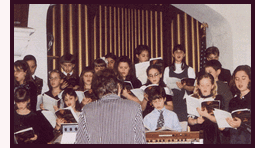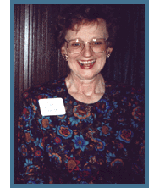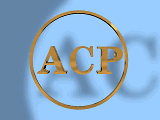|
|
|
Church Music:
Yesterday, Today, and Tomorrow |
by Rembert G. Weakland, O.S.B, Archbishop
of Milwaukee
Continued from previous page
The Future
What should we be doing at this moment as we look toward the future
of parish church music?

We must continue to see music as integral to the congregation's
faith response; to be conscious of the importance of the text; to
use choir and cantor to support, extend, and edify the worshipping
community. What we need most, however, is an explicit commitment
on the part of all involved to restudy Pius X's admonition on quality
and the need for music to create an awareness of the sacred, of God's
presence.
In a more concrete way, the following guidelines should shape our
music in the Catholic parish of the new millennium.

- There should be some music at every eucharist. Texts,
such as the Alleluia, the Acclamation after the words of
institution, the Great Amen at the end of the Eucharistic Prayer,
cry out for music. That music does not have to be long nor complicated.
- Every parish needs a cantor and a choir. At every Mass
on Sunday there must be music. In addition to those pieces just
mentioned as essential, there should be an Entrance Song, a response
to the Readings, the Preface acclamation, and Communion hymns.
The role of the choir and cantor is to sustain and vary all of
these chants.
- Every parish needs a trained musician, with liturgical sensitivity, to
ensure the quality of the music chosen and adequate performance
of the right piece at the right time. These decisions are not
the prerogative of elected committees of untrained people, regardless
of their goodwill. Elected liturgy committees could well meet
early in the week with the musician in charge and the priests
who will be celebrating the Sunday liturgy. Together they can
reflect on the theme of the biblical texts and suggest music
that corresponds to that theme; but the ultimate judge of quality
must be the professional.
- It is important that a congregation learn to sing well,
and in rhythm. One of the reasons why congregational singing
has not been well accepted is that it is not well done. Often
the choir sings its portion in a professional way, to be followed
by a ragged singing of the assembly. People are embarrassed
by this and come away feeling angry. No one enjoys doing poorly.
Often this is the fault of the musician in charge, who ignores
the congregation.
- Most of all, people must be taught that the music--words
and melody--is their prayer. They do more than sing; they
pray together.
To implement all these points will require time and a concerted
effort. We must sharpen our tastes in music in general, so that
church will not be an isolated moment, but a part of our general
cultural concern for quality. As believers, we must support that
kind of art and music that ennobles the human spirit and inspires
belief in the transcendent dimension of God's presence in human
history.
This article, Church Music: Yesterday, Today, and Tomorrow, was
adapted with permission from Today's Parish, available from
Twenty-Third Publications, (800) 321-0411.
|


